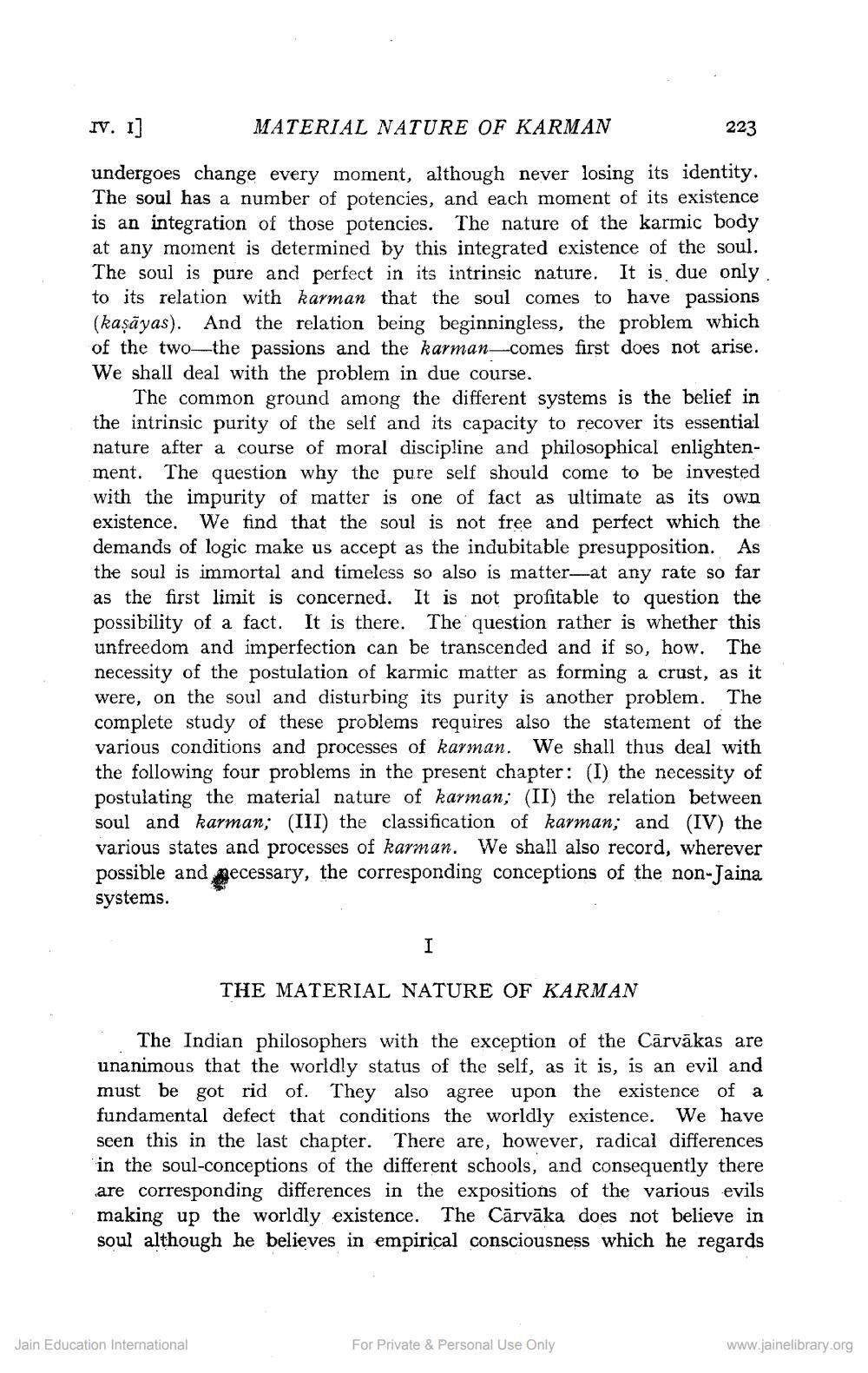________________
IV. 1]
MATERIAL NATURE OF KARMAN
223
undergoes change every moment, although never losing its identity, The soul has a number of potencies, and each moment of its existence is an integration of those potencies. The nature of the karmic body at any moment is determined by this integrated existence of the soul. The soul is pure and perfect in its intrinsic nature. It is due only to its relation with karman that the soul comes to have passions (kaşāyas). And the relation being beginningless, the problem which of the two-the passions and the karman-comes first does not arise. We shall deal with the problem in due course.
The common ground among the different systems is the belief in the intrinsic purity of the self and its capacity to recover its essential nature after a course of moral discipline and philosophical enlightenment. The question why the pure self should come to be invested with the impurity of matter is one of fact as ultimate as its own existence. We find that the soul is not free and perfect which the demands of logic make us accept as the indubitable presupposition. As the soul is immortal and timeless so also is matter—at any rate so far as the first limit is concerned. It is not profitable to question the possibility of a fact. It is there. The question rather is whether this unfreedom and imperfection can be transcended and if so, how. The necessity of the postulation of karmic matter as forming a crust, as it were, on the soul and disturbing its purity is another problem. The complete study of these problems requires also the statement of the various conditions and processes of karman. We shall thus deal with the following four problems in the present chapter: (I) the necessity of postulating the material nature of karman; (II) the relation between soul and karman; (III) the classification of karman; and (IV) the various states and processes of karman. We shall also record, wherever possible and necessary, the corresponding conceptions of the non-Jaina systems.
THE MATERIAL NATURE OF KARMAN
The Indian philosophers with the exception of the Cārvākas are unanimous that the worldly status of the self, as it is, is an evil and must be got rid of. They also agree upon the existence of a fundamental defect that conditions the worldly existence. We have seen this in the last chapter. There are, however, radical differences in the soul-conceptions of the different schools, and consequently there are corresponding differences in the expositions of the various evils making up the worldly existence. The Cārvāka does not believe in soul although he believes in empirical consciousness which he regards
Jain Education International
For Private & Personal Use Only
www.jainelibrary.org




